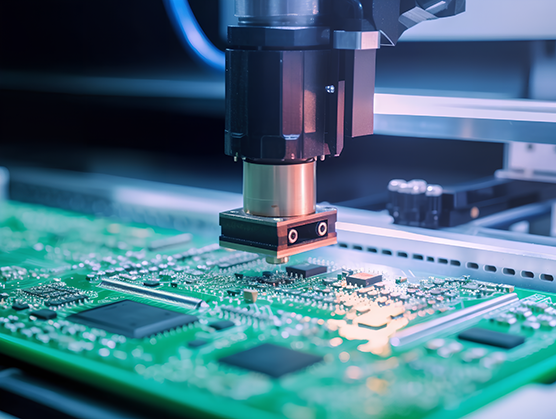As medical technology continues to advance, the application of electronic devices in diagnosis, monitoring, and treatment is rapidly expanding. As the central electronic component of these devices, the PCBA performs many essential functions, with its performance directly determining operational efficiency and safety. The foundation supporting all of this is high-quality PCB assembly technology - only through precise and reliable assembly processes can the PCBA maintain long-term stable operation, thereby ensuring the reliability of medical devices and the safety of patients' lives.

1. Supporting the Operation of High-Precision Medical Equipment
Medical devices such as electrocardiographs, CT scanners, MRI machines, and blood glucose monitors all rely on high-precision, highly reliable PCBA. These applications demand excellent signal integrity and strong anti-interference capabilities to ensure diagnostic accuracy. For example, internal devices like pacemakers and implantable insulin pumps require PCBA that are miniaturized, low-power, and highly stable over time - any minor defect in assembly could lead to serious consequences.
2. Enabling Smart and Data-Driven Devices
With the integration of AI and IoT technologies into the medical field, more and more medical devices are now equipped with data collection, remote monitoring, and intelligent diagnostics. This imposes higher demands on PCB assembly processes, requiring support for greater integration density and module complexity to meet the performance needs of these devices in terms of computing power, sensing capabilities, and communication. For instance, remote heart rate monitoring devices depend on the efficient integration of multiple functional modules such as wireless communication modules, microcontrollers, and sensors, all of which rely on a stable PCBA foundation.
3. Meeting Stringent Quality and Certification Standards
Medical devices impose extremely stringent quality control requirements on PCB assembly, necessitating compliance with industry standards such as ISO 13485. Additionally, medical electronics must pass EMC (Electromagnetic Compatibility) testing, biocompatibility testing, and more to ensure they do not interfere with patients or the medical environment. These standards impose higher requirements on solder joint quality, component layout, insulation spacing, etc. Therefore, PCBA production in the medical industry typically employs fully automated equipment and high-precision inspection systems to achieve high yield and consistency.
4. Supporting the Trend Miniaturization and Portability
Portable medical devices such as wearable blood pressure monitors, smart hearing aids, and handheld ultrasound machines are transforming healthcare delivery models. These devices present greater challenges for PCB assembly processes, including multilayer PCB design, high-density interconnect (HDI), and the use of flexible PCBs. Only high-quality PCBA can integrate more functional modules within limited space while ensuring the device's lightweight and user-friendly design.
5. Enhancing Device Lifespan and Safety
Medical devices are expected to operate reliably over extended periods, demanding exceptional durability and safety from their PCBA. A robust PCB assembly process not only extends device lifespan and reduces maintenance needs but also prevents sudden failures that could lead to medical risks. For example, in life-support systems, a single solder joint failure or signal anomaly could have fatal consequences for the patient.
In the medical industry, PCB assembly is not just a fundamental manufacturing process, it is a critical link directly tied to patient safety and healthcare quality. With the ongoing evolution of medical electronics toward greater intelligence, miniaturization, and reliability, increasingly stringent demands are being placed on PCBA technology and quality management. Only through continuous optimization of PCB assembly processes and strict quality control can we deliver truly reliable and advanced electronic solutions, empowering modern healthcare to operate more safely and efficiently.
HoYoGo is an international, professional, and reliable medical PCBA manufacturer, and we have obtained ISO 13485 certification. Our production, engineering, and procurement teams consistently adhere to the highest industry certification standards. With extensive experience and specialized expertise in medical PCB assembly, we are well-equipped to meet your needs. If you have any related needs, you are welcome to send us an inquiry.